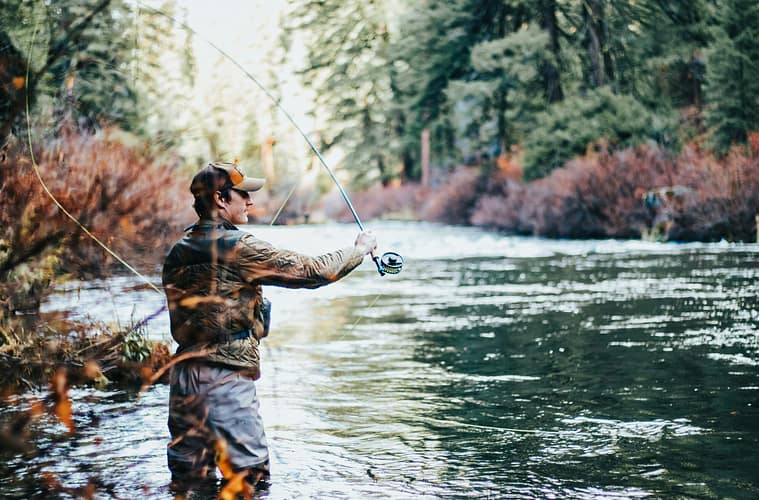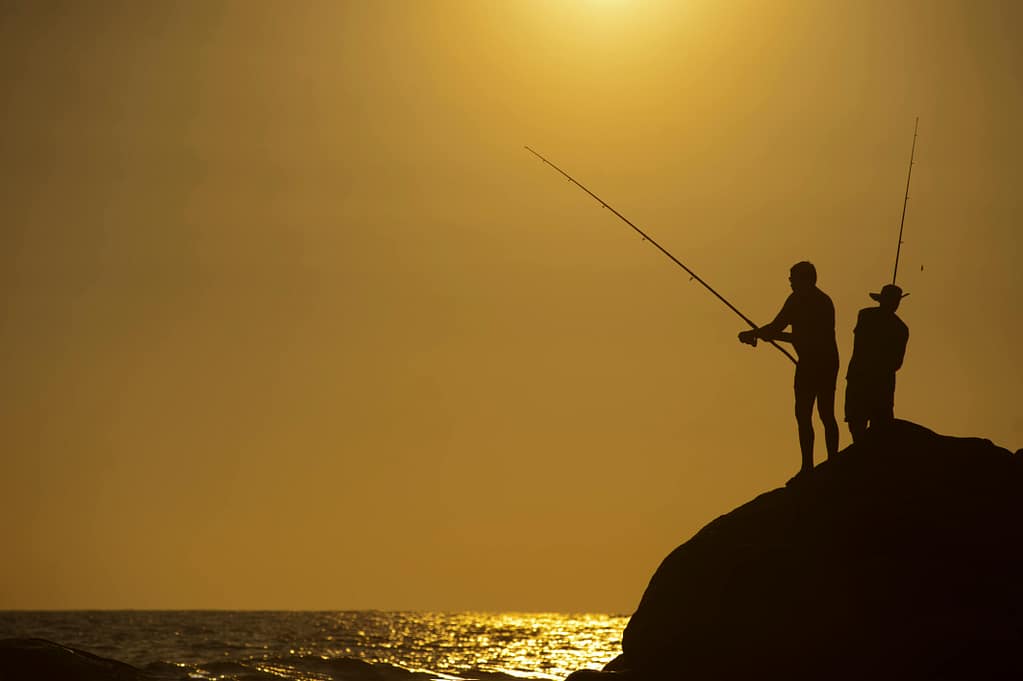Fishing has long been a favorite pastime for people around the world. Whether enjoyed on quiet lakes, rushing rivers, or scenic coastlines, it offers more than just the promise of catching a fish. It provides relaxation, connection with nature, and an opportunity to spend meaningful time with friends and family. For many, fishing becomes a rewarding hobby that improves both mental and physical well-being.
Making Memories Through Unique Experiences
One of the most appealing aspects of fishing is the opportunity to create lasting memories with loved ones. Spending a day on the water encourages people to slow down, disconnect from daily distractions, and have meaningful conversations.
While solo trips can offer peaceful solitude, group excursions allow families to bond in a way that few other activities can replicate. For those seeking a structured and enjoyable introduction, guided fly fishing adventures for families provide the perfect starting point. These experiences offer expert instruction, high-quality gear, and access to prime fishing locations, removing the stress of planning and logistics. Beginners can focus on learning new skills, while experienced anglers can explore new techniques or fishing spots. The result is a shared adventure that strengthens relationships and builds memories that last for years.
Reducing Stress and Improving Mental Health
Spending time near water has been shown to have a calming effect on the mind. The gentle sounds of flowing rivers, the rhythm of casting a line, and the quiet focus required for fishing all contribute to lower stress levels. Many anglers describe fishing as a form of active meditation that helps them clear their minds and find balance.
Having an activity that promotes relaxation is incredibly valuable. Fishing offers a rare opportunity to step away from screens, breathe fresh air, and immerse yourself in nature’s tranquility. This break from routine can lead to reduced anxiety, improved mood, and greater mental clarity.
Physical Benefits That Come Naturally
Fishing may seem like a sedentary hobby, but it actually involves a surprising amount of physical activity. Whether hiking to remote fishing spots, wading in rivers, paddling a boat, or repeatedly casting a line, anglers engage a variety of muscle groups throughout the day. These low-impact movements improve endurance, coordination, and balance.
Even simple tasks like carrying gear, walking along uneven terrain, or reeling in a fish provide light exercise that can contribute to fitness. Unlike more intense workouts, fishing allows people of all ages and fitness levels to participate comfortably while still staying active.
Learning Patience and Focus
Fishing teaches patience and the value of slowing down. Success doesn’t happen immediately, and waiting for a fish to bite requires a calm and focused mindset. Anglers learn to observe their surroundings carefully, read the water, and make thoughtful decisions about where and how to cast.
These skills translate well beyond the water. Developing patience and concentration can improve problem-solving abilities, boost productivity, and help individuals stay composed under pressure in daily life.
Connecting With Nature on a Deeper Level
Fishing provides an immersive way to experience the natural world. Anglers become attuned to weather patterns, water temperatures, and animal behavior as they learn how these factors influence fish activity. Spending regular time outdoors fosters a deeper appreciation for local ecosystems and wildlife.
This connection often inspires greater environmental awareness and stewardship. Many anglers become advocates for clean water, habitat preservation, and sustainable fishing practices, ensuring that future generations can enjoy these experiences too.
A Hobby That Grows With You
One of fishing’s greatest advantages is its adaptability. It can be enjoyed at any age and skill level, from casual weekend outings to serious competitions. Beginners can start with basic gear and techniques, then gradually explore more specialized methods like fly fishing or saltwater angling as their interests grow.
Because fishing offers endless opportunities to learn, it remains engaging. No two trips are ever the same, which keeps the hobby fresh and exciting for years.
Supporting Local Communities and Conservation
Fishing isn’t just good for individuals; it benefits communities and the environment. Many regions rely on recreational fishing for tourism revenue, which supports local businesses such as bait shops, outfitters, lodges, and restaurants. Fishing license fees and conservation stamps often fund wildlife protection, habitat restoration, and environmental education programs.
By participating in fishing responsibly, anglers contribute to both the economic and ecological health of the areas they explore. This shared investment helps preserve waterways and fish populations for future generations.
Fishing is far more than a way to catch dinner. It’s a fulfilling activity that nurtures physical health, mental well-being, family connections, and a deeper appreciation for nature. From peaceful solo trips to exciting group outings, fishing offers something for everyone.
Whether you’re a beginner or an experienced angler, embracing the art of fishing can enrich your life in meaningful ways. By taking the time to slow down, engage with the environment, and enjoy the moment, you’ll discover why fishing has remained a beloved pastime for centuries.
Published by HOLR Magazine.




